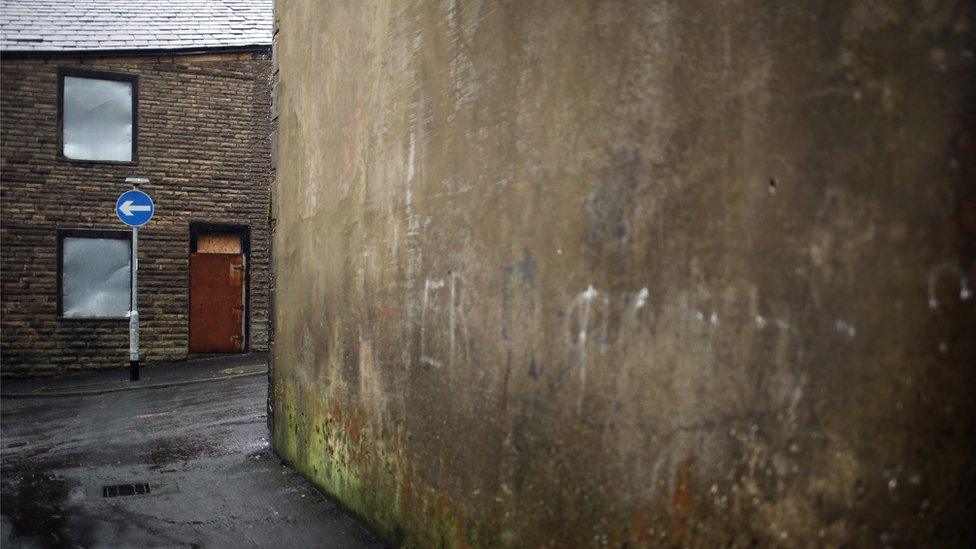Empty homes: Cost to councils 'a massive risk'
- Published
- comments
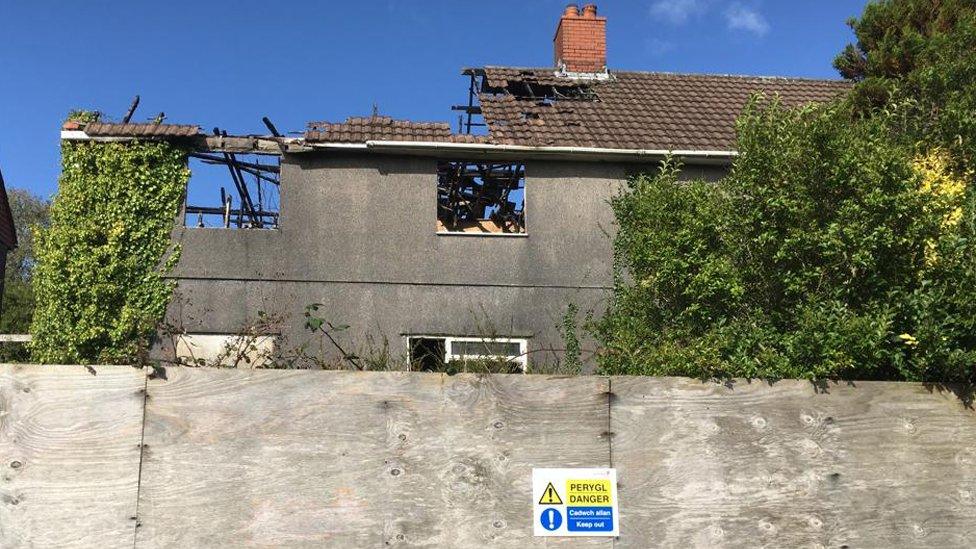
There are only three families left on Llanelli's Brynmefys estate - most homes are boarded up
Powers to turn empty houses back into homes are not being used enough because of the cost and risk faced by councils, a report has said.
Councils can take control of homes if they are left empty for two years, external and are in a bad condition.
An inquiry heard taking action could be a "massive risk" because the process is expensive and might not work.
The Welsh Government said it was on target to bring 5,000 empty homes back into use.
It will consider the report carefully and respond in due course, a spokesman said, adding the government was improving its Houses to Homes scheme, external to simplify the grants and loan process and set up a team to help councils tackle empty homes.
AMs want a national plan to deal with the almost 30,000 empty homes in Wales.
The assembly's equalities committee launched an inquiry, external because of concern that empty homes are blighting neighbourhoods.
The report is about empty privately-owned homes - figures show there were 27,000 in April 2018 - but councils and social housing landlords also have 1,700 long-term empty properties.
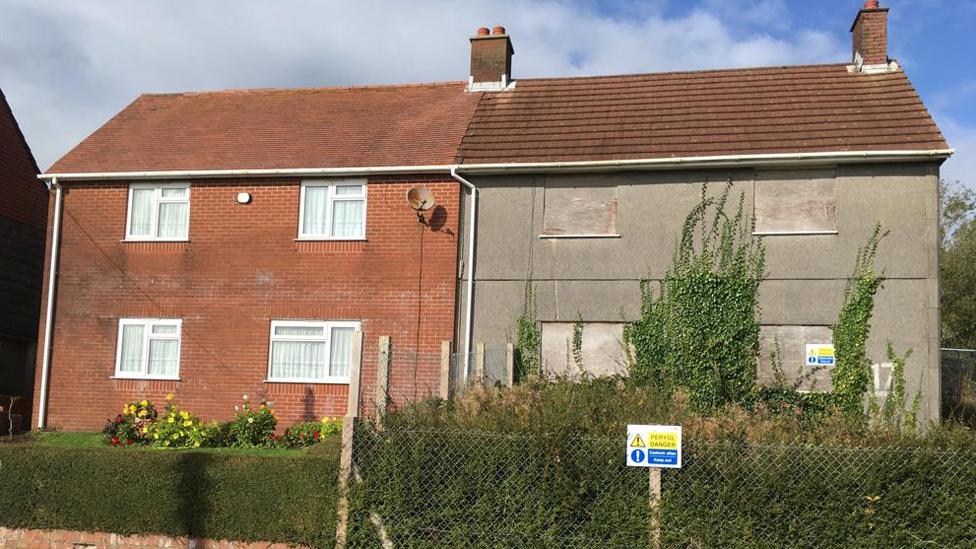
Interest-free loans and grants are available to help owners renovate properties
There have been complaints about them attracting vandals and vermin and dragging down the price of nearby homes.
Some homes deteriorated because owners inherited them and could not afford to renovate them, the committee heard, while some councils encountered uncooperative owners or could not trace them.

Figures also show 4.6% of empty homes in the last year were brought back into use, although there was a variation between different councils, compared to 5.2% in 2017-18.
The committee said it was "particularly frustrating" homes were going to waste when there is a shortage of housing.
A dedicated empty homes officer "can make a significant difference", the report said, but not all councils have them.
Councils have powers to bring homes back into use by applying for empty dwelling management orders, but only four councils said they used them and only three used compulsory purchase orders.
AMs were told there was a "significant financial risk to authorities where substantial work is required to an empty property with no guarantee of a positive outcome".
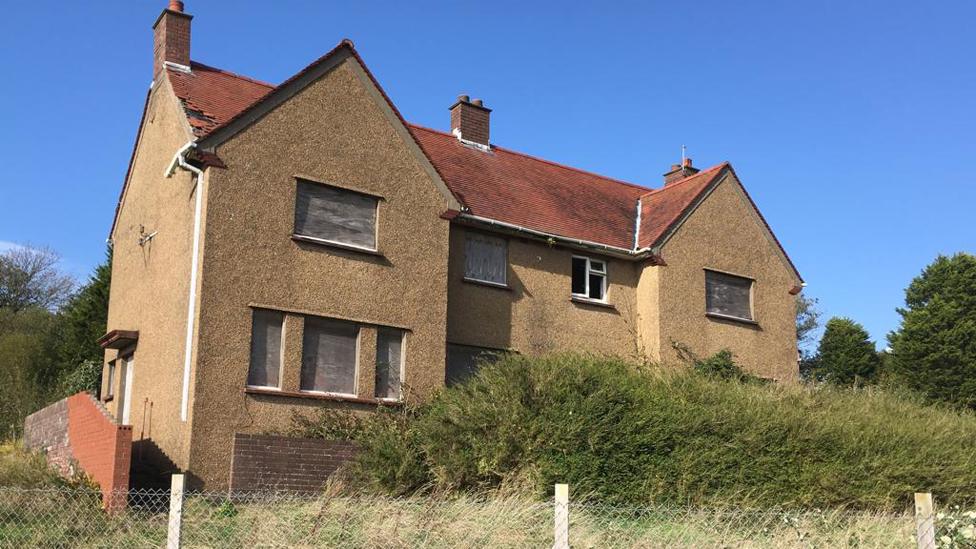
Llanelli's Brynmefys Estate is all-but abandoned
Buildings scarcely visible
The council-owned Brynmefys estate, on the outskirts of Llanelli, is among the empty homes detailed in the report.
All but three of the 32 homes have fallen into disrepair and serve as a ghostly reminder of the estate's heyday.
Windows are boarded up, there are gaping holes in roofs. Some buildings are so overgrown they are scarcely visible from the road.
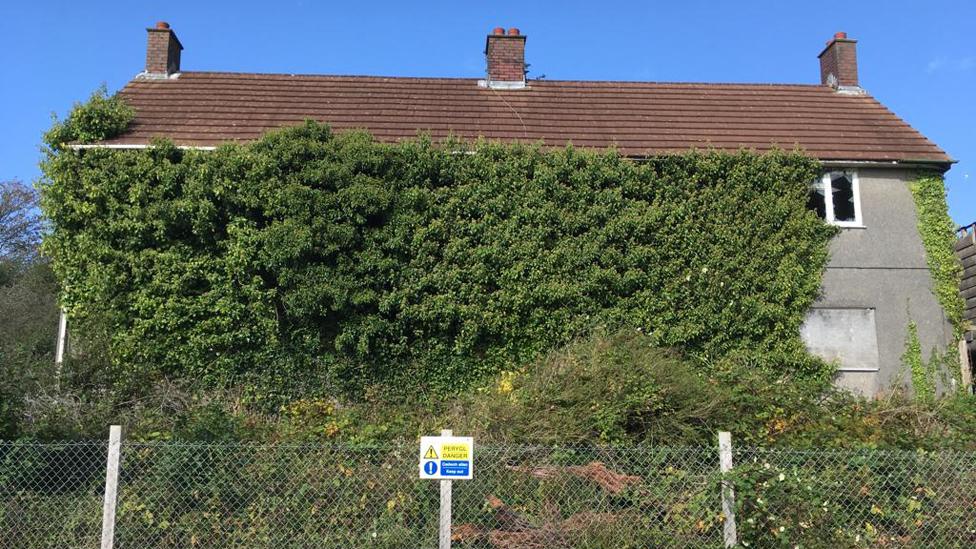
Scottish government plans to introduce Compulsory Sales Orders - forcing owners to sell - have been put on hold
The resident I spoke to, who did not want to be named, said there had been problems with fly-tipping and drugs in some of the empty houses.
"When we first came here it was full of people, full of children," one of the remaining residents said.
"It was a community. But it gradually changed over the years."
Three families still live on the estate - they've been there since the 1970s, but everyone else started moving out in the 1990s.
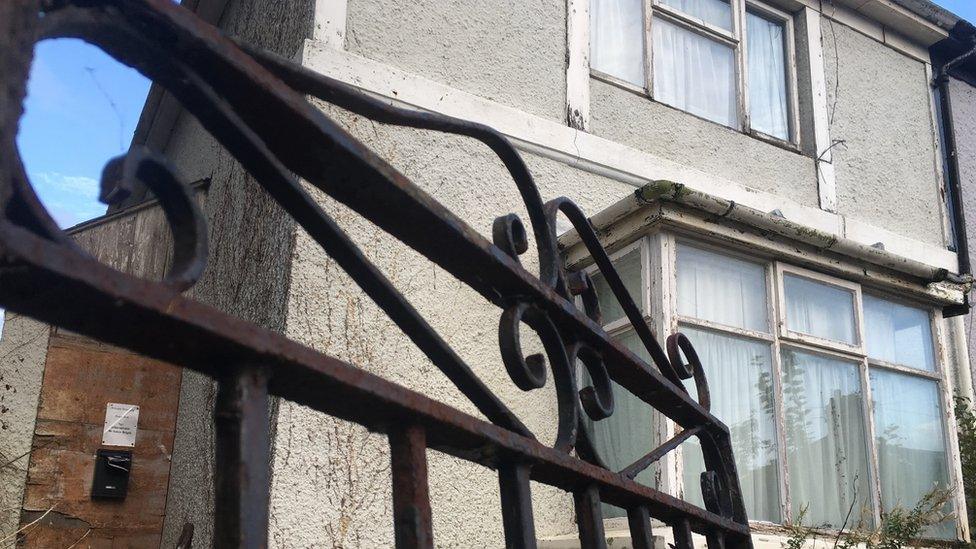
This house is empty in Penarth, Vale of Glamorgan - the council brought five houses back into use in 2018-19
Carmarthenshire council, which has two full-time empty property officers, has 2,600 empty homes out of about 75,000 homes in the county.
Linda Davies-Evans, the councillor in charge of housing, said empty homes were being transformed by "working with empty property owners, getting in touch with owners, talking them through a process and helping financially if needed".
She said taking enforcement action was a "last resort" that could cost up to £40,000.
"Unfortunately it's a long process, it cannot happen overnight," she said.
"We have cases where it has taken about three years to go through the whole process and I understand that can be very, very frustrating for people who live within that community where they have a derelict property in the area."
The report recommends looking at new powers to force owners to sell.
Committee chairman John Griffiths said: "Local authorities have powers to deal with empty properties, but taking enforcement action isn't straightforward. It is time consuming and there is no certainty of it being successful."
The Welsh Local Government Association said the powers available to councils were "complex and costly" and needed to be reviewed.
A spokesman said: "Whilst we welcome in principle the recommendation of having a dedicated empty property officer in each authority, it is imperative that all authorities have the necessary discretion to make decisions around using their resources in response to the distinct circumstances in each area."
- Published10 September 2019
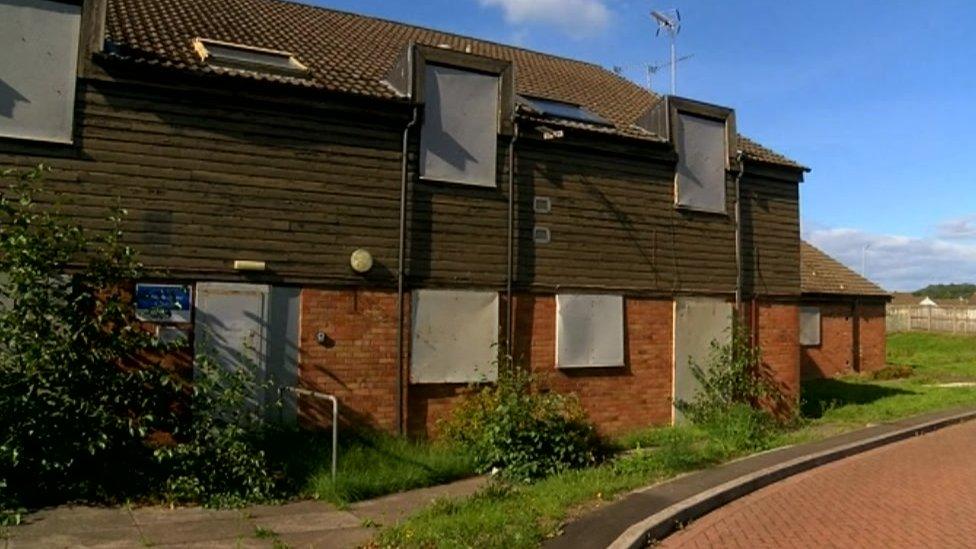
- Published7 August 2019
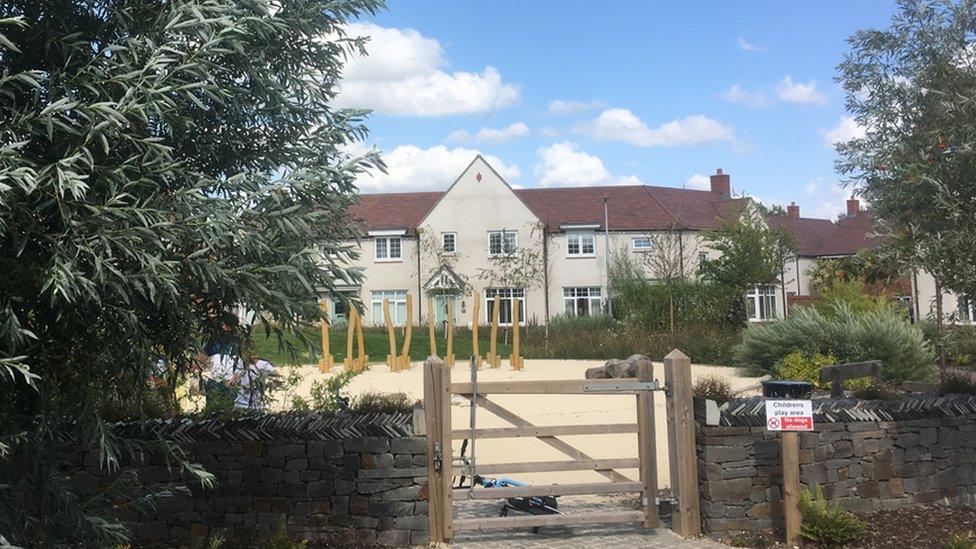
- Published18 July 2019

- Published1 December 2017
